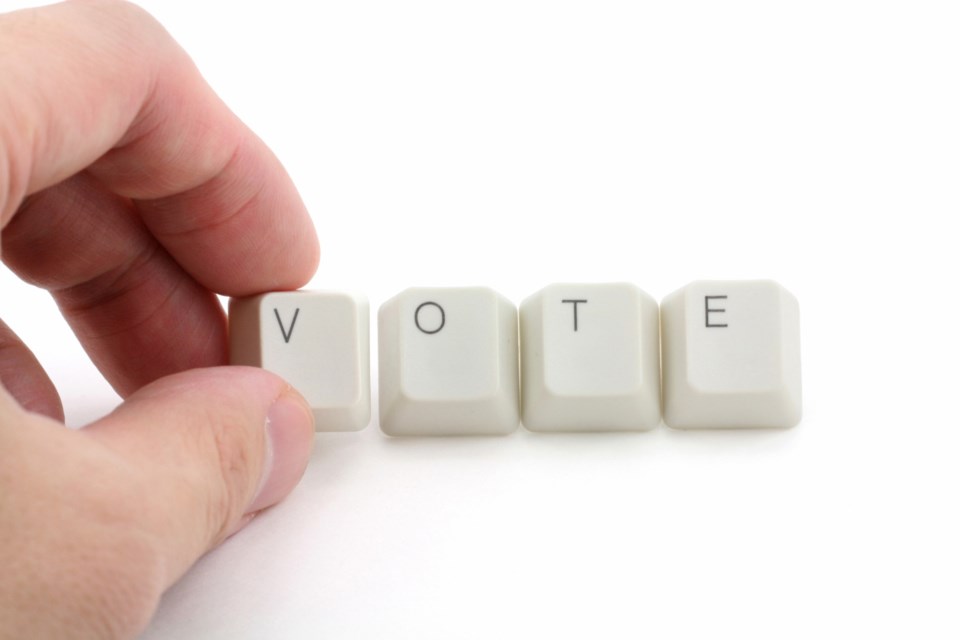Online voting came up again at Monday’s mayoral debate hosted by the Guelph Chamber of Commerce. To recap: Aggie Mlynarz is against, Cam Guthrie is for.
This issue may be the unspoken undercurrent of this election.
If voter turnout comes no where close to matching 2014’s numbers, the blame will automatically fall on the lack of an online option. Guthrie has promised that if re-elected, he will move to re-instate online voting for 2022, and if turnout is low, we will likely hear a chorus of support for that position.
Me? I used to be firmly against online voting. I still might be. One thing I know though is that Guthrie’s promise of allowing “secure” online voting is like building a house in a flood plain and promising the owner that their home will never be under water.
Let’s get our travelling shoes on and head a few miles down the road to Midland. I know, it’s off season, but this is important.
Last month, town officials in Midland paid a ransom of Bitcoins to hackers who had compromised the computer systems at city hall. The hackers had seized the town’s encryption keys in August, and the computers were rendered useless for weeks afterward, even after they paid the ransom.
A similar attack, a ramsomware scheme where hackers get into a network via someone opening a email, was perpetrated in Wasaga Beach this past April.
Closer to home, cryptocurrency miners were able to hijack the City of Cambridge website, and used the computers of the 500 people logged into the system to help them make Monero. That’s not a typo, that’s the cryptocurrency those hackers were mining.
I mention all this to point out that “secure” is not something that can be easily promised. Did Midland, Wasaga Beach, and Cambridge consider their networks secure? They probably did, but then again, who would have thought that anyone would try and hack Midland, Wasaga Beach, or Cambridge for that matter?
In other words, we shouldn’t be worried about the Russians here in Guelph, we should be worried about the Jokers, the ones that just want to watch the world burn. Or worse, trying to coerce fake computer money out of an unwitting city staff.
I won’t pretend to be a cyber security expert, but I know enough that the old adage about building a better mouse trap still applies. There are some smart mice out there, but they lack a moral compass, and there’s absolutely nothing stopping them in deciding to burn the system down if they want to.
Now that I’ve scared you about the Internet, let me scare you about voting in person.
It was about 12 years ago that Scott Gilbert, my colleague at thecannon.ca at the time, proved that you can cast multiple ballots across several polling stations because there wasn’t a requirement to show identification. Following this reporting, the Ontario Municipal Election Act was changed so that people had to show one piece of identification at the polls.
Now this is an extreme example. Voter fraud is, essentially, a crime as rare as skyjacking in the end. What I’m trying to get at is that real life can be as easy to hack sometimes as our computers. All it takes is someone with the will to do it.
Fortunately, in this case, young Gilbert’s intentions were pure. He wanted to prove there was a hole in the system, and while the police investigated, he was never charged.
So the danger is real no matter the venue, but in the case of online voting, there are benefits, especially for our citizens with accessibility issues. Or even citizens that may be out of town during the early voting period or on election day itself.
The infuriating thing about the debate last year over whether or not the city would continue online voting was that it felt like the whole thing was rushed. A decision had to be made due to provincial deadlines, and it felt like the city, as a chorus of concerned citizens, was only at the beginning of a discussion. Not the end.
There were options that could have been explored, expertise that could have been gathered, informed decisions that could have been made. Instead, we got a “party line” vote between two sides that both had valid points.
Now, in an election year, it’s being treated as a party issue. Another one of those “whose side are you on?” questions.
Instead of promising one of two diametrically opposite positions, I would have liked to have seen one of the mayoral candidates open the possibility for a complete hearing on online voting. What exactly are the dangers? Can we mitigate them in an acceptable way?
Mayor Guthrie hailed the direction of service reviews during last term. Perhaps online voting could be subject of a service review of its own.
In the meantime, if you are willing, and if you are able, please consider voting in-person this election and exercise your franchise.
Advanced polls open next Friday, Oct. 12.
